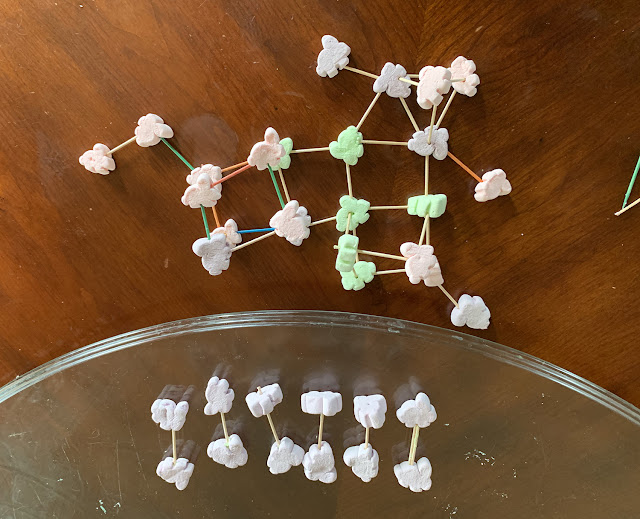 |
| Click to enlarge |
I think this was our longest unit this year. Have I mentioned that this was a strange year? It was really different for us because for the first time we had lots of things going on outside of our "Family School." The older boys had classes once a week at a co-op, plus some extra sports (and Abe turned 1 and got a job!), the girls were doing swimming and gymnastics with money from an online charter school, and all of the children had extra technology and science classes that weren't completely put together by me! It was fun to have some variety, but a little sad to give up some of the time together that we've loved. I guess that's what happens as the children grow up!
Anyway, we kept our family school units going twice a week, so everything took a little longer to get through, but we still had a good time. Here are some links we found useful:
I found myself suddenly interested in bulbs. Here is a good summary of the difference between bulbs, tubers, rhizomes, and corms. And here's another good explanation of what bulbs are.
We made the prettiest bracelets out of juniper berries—which are really the soft cones of juniper trees!
Have you wondered the difference between cedars and junipers? Now you can know!
We have the lovely Utah Juniper all over in our area. (And of course the lovely Juniper Lark lives in our house, ha ha.)
The kids had a surprising amount of fun with this activity, even though I thought it would be too young for them!
I want to do this activity in the Fall
Here is a photosynthesis video, and here's another. It was hard finding good ones! This one was pretty good, though.
Simple explanations of transpiration and capillary action
Our very first unit was on Flowers! It seems so long ago.
We had a Tree Unit several years ago, too.
I liked Marigold's plant cell drawing!
We looked at plant cells through a microscope.
Here we have 6 molecules of CO2 and 6 molecules of H2O…
Which are re-organized into a huge glucose molecule (C6-H12-O6) and 6 molecules of O2!
One day we tasted foods that come from all parts of a plant.
Peppers=fruit
Bananas=fruit
Carrot=root
Onion=bulb
Peas=seeds
Radish greens=leaves
Asparagus=flowers and stems
This project never works the way I want it to. Maybe I don't use enough food coloring in the water.
You can see a liiiiiittle blue in the petals, though.
We started a bunch of seeds indoors because it was too cold outside. I've never done that before, but it was fun. Malachi used them for his herb garden project, for one of his classes at the co-op we're part of.
Here are instructions for making a terrarium. We loved making these! I used assorted containers I found at the thrift store for a dollar or two. And they instantly made the house look so green and vibrant! I am not used to having many plants around (inside, anyway).
The best part of these terrariums (terraria?) was putting little tiny animals in them!
We have this little microgreens planter and we love it! Microgreens are just baby vegetables. They are a little more mature than sprouts (which are just barely-sprouted seeds), and they have tiny new leaves rather than just the first cotyledons, but you can use any kind of seeds to grow them. I think these were broccoli and radish greens. Or maybe mustard? Or maybe basil? I can't quite remember. We have tried lots of kinds! They all taste a little different. This batch grew really fast—they had sprouted by the second day!
You harvest the microgreens just by clipping them with scissors. We ate this batch on grilled cheese sandwiches and they were SO GOOD. We also like them in scrambled eggs. Or sprinkled on pasta. Yum!

















